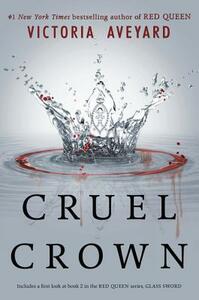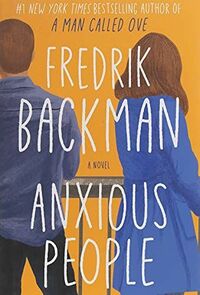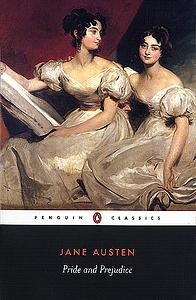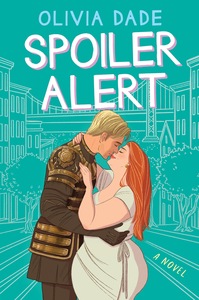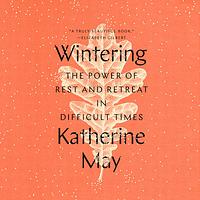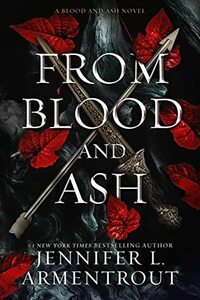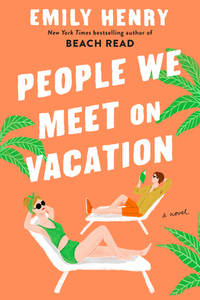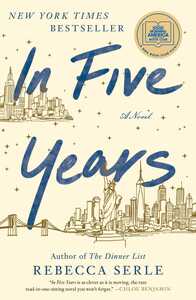Take a photo of a barcode or cover
chandasolara's Reviews (407)
"The truth? The truth about all of this?"
This review will contain spoilers, but I have a LOT of feelings about it, so we're gonna dive right in. If you're looking for a book that examines humanity in all its messy, funny, compassionate, witty, tragic and heartfelt moments, this is the book for you.
When the author says that nothing is as it appears to be, they mean it. We begin with a bank robbery and subsequent hostage situation--a horrifying event under normal circumstances, yes, but it's so much more than that. The book alternates between the origins of its ensemble cast of diverse, interesting characters and the present, including the interrogation of the father-and-son detective duo as they try to get to the bottom of what really happened in the apartment hostage situation. As we go, we learn more about each character, how they got where they were, and the red strings of fate (if you'll forgive the allusion) connecting them all together.
"We're doing the best we can, we really are. We're trying to be grown-up and love each other and understand how the hell you're supposed to insert USB leads."
At first, it was difficult to keep track of all the different characters, but I think that's where the book excels in its premise. So much of the plot relies on all of these characters being forgettable in their own right: people you see (and maybe even don't see!) when getting on or off the bus, while waiting in line for your coffee. But as the book progresses, each one plays an important role in the unraveling of the plot and the eventual reveal of the bank robber. It's heartfelt and surprising, and many parts had me feeling like I was experiencing whiplash from how quickly I volleyed through emotions, but it never felt contrived.
"We're looking for something to cling on to, something to fight for, something to look forward to."
What I loved most about this book was the all the moments that really subvert the reader's expectations. It's true to life: we think we all have it figured out--or we try to put on a front that we do--but when push comes to shove, we're muddling through the mix just like everyone else. And that's what makes us anxious: if we collectively address that we have no idea what we're doing, then it doesn't seem so scary anymore. We're all holding up this collective facade that everything is okay; we all know what we're doing. Until we don't. This story was a wonderful examination of those moments where everything comes crashing down around us.
Because people? We're all idiots.
"We have all this in common, yet most of us remain stranger. We never really know what we do to each other, how your life is affected by mine."
We all have bridge moments. I hope that this book and the reminders of those you unwittingly touch can help you through yours. If you're on the fence about reading this book, do it. I promise you won't regret it.
This review will contain spoilers, but I have a LOT of feelings about it, so we're gonna dive right in. If you're looking for a book that examines humanity in all its messy, funny, compassionate, witty, tragic and heartfelt moments, this is the book for you.
When the author says that nothing is as it appears to be, they mean it. We begin with a bank robbery and subsequent hostage situation--a horrifying event under normal circumstances, yes, but it's so much more than that. The book alternates between the origins of its ensemble cast of diverse, interesting characters and the present, including the interrogation of the father-and-son detective duo as they try to get to the bottom of what really happened in the apartment hostage situation. As we go, we learn more about each character, how they got where they were, and the red strings of fate (if you'll forgive the allusion) connecting them all together.
"We're doing the best we can, we really are. We're trying to be grown-up and love each other and understand how the hell you're supposed to insert USB leads."
At first, it was difficult to keep track of all the different characters, but I think that's where the book excels in its premise. So much of the plot relies on all of these characters being forgettable in their own right: people you see (and maybe even don't see!) when getting on or off the bus, while waiting in line for your coffee. But as the book progresses, each one plays an important role in the unraveling of the plot and the eventual reveal of the bank robber. It's heartfelt and surprising, and many parts had me feeling like I was experiencing whiplash from how quickly I volleyed through emotions, but it never felt contrived.
"We're looking for something to cling on to, something to fight for, something to look forward to."
What I loved most about this book was the all the moments that really subvert the reader's expectations. It's true to life: we think we all have it figured out--or we try to put on a front that we do--but when push comes to shove, we're muddling through the mix just like everyone else. And that's what makes us anxious: if we collectively address that we have no idea what we're doing, then it doesn't seem so scary anymore. We're all holding up this collective facade that everything is okay; we all know what we're doing. Until we don't. This story was a wonderful examination of those moments where everything comes crashing down around us.
Because people? We're all idiots.
"We have all this in common, yet most of us remain stranger. We never really know what we do to each other, how your life is affected by mine."
We all have bridge moments. I hope that this book and the reminders of those you unwittingly touch can help you through yours. If you're on the fence about reading this book, do it. I promise you won't regret it.
“It was a relief and a horror to be known so perfectly.”
This book... oof.
The book begins somewhere near the end; from the very beginning, we're aware that the main characters, Paul and Julian, will make an irrevocable choice, and thus the reader is mired in a sense of suspended tension the entire book. Each details builds upon that suspense, and by the time the puzzle pieces of Julian and Paul's fall from grace (admittedly a rather short fall, if you're to believe Paul's POV) fit together, I found myself inexplicably rooting for two broken boys who hoped to heal themselves with one another and still found themselves fundamentally broken. (see end of review for triggers)
Julian and Paul are first-year college students. Both are Jewish-American, and their experiences echo the tension between assimilation and "otherness" indicative of Jewish experience post-WWII. These experiences, combined with the stigmas faced by two queer men in the 1970s, are foundational to their identity and the actions that they take. Nothing can be taken at face value, as Paul, our narrator, filters everything through an intense veil of self-loathing, compounded by his ruminations on who he is not and who he wishes to be. Paul's father, a cop, has recently committed suicide and his family--particularly his mother--still reels from the loss, and though he triees to distance himself from it throughout the narrative, it's apparent that the event underscores a certain level of trauma that Paul struggles with. Julian, too, is very aware of his place in the social unit, but he manipulates most everyone he comes across to present the most acceptable version of himself he can. His family is new-money wealthy, and he makes passing references to his WASP-passing privilege, until he abandons the money and support of his family. They are both whip smart and share interests, and the darkness in them seems to call to each other. As it spirals out of control, their intelligence and moral superiority give way to a dark, obsessive need to define who they are for themselves, beyond the bounds of established identity and experiences.
As the narrative progresses, our understanding of the characters fractures along with Paul's sense of identity. Almost as he views himself--a before and after--we must, too, see the characters as defined by The Endgame, as they coin it. However, even Paul's perception of Julian is flawed, because it is considered simply in relation to Paul, so our understanding of Julian rests on a tentative foundation: how much of a person can we know through an unreliable narrator? As the plot evolves and we learn more about both characters, the horror of the obsession and delirious need that drives both of them becomes increasingly apparent, and nothing is ever as it seems. When the truth and identity are as nebulous as they are to Paul, our very understanding of the characters change as they reinvent themselves, time and again, through the narrative. Fascination turns to want to obsession to hatred to destruction almost as naturally as the chart of a path, and it's both frightening and exhilarating to find yourself cheering for characters so broken.
I particularly enjoyed the academia discussed throughout and the way Nemerever's prose lended itself to the sort of dense topics that the boys discussed. At times, the prose was incredibly dense and difficult to trudge through, but even then it never felt like the content was the reason behind it. Paul is an incredibly insular character, and the feeling of anxiety that his narrative invokes, a claustrophobia of awareness that drives his very existence and need to change himself, forces the reader to slow down and take in all that he does, attempting to file it away for dissection later, much like he pins his butterflies to the specimen boards.
Overall, These Violent Delights was a dark, thrilling read that puts you inside the mind of an impossibly sad, aching character, and it makes you want to help them. Even as the narrative devolves into the horror of their actions, the characters' redeeming qualities (of which few are noted, largely due to Paul's self-hatred and pessimism) provide glimpses of hope and love that keep you coming back for more--and then leave you dashed upon the shores of a river, gasping desperately for breath as Paul and Julian look on.
Triggers: suicidal ideation, toxic relationship, intimate partner violence, homophobia, murder, abuse, implied self-harm and suicide
This book... oof.
The book begins somewhere near the end; from the very beginning, we're aware that the main characters, Paul and Julian, will make an irrevocable choice, and thus the reader is mired in a sense of suspended tension the entire book. Each details builds upon that suspense, and by the time the puzzle pieces of Julian and Paul's fall from grace (admittedly a rather short fall, if you're to believe Paul's POV) fit together, I found myself inexplicably rooting for two broken boys who hoped to heal themselves with one another and still found themselves fundamentally broken. (see end of review for triggers)
Julian and Paul are first-year college students. Both are Jewish-American, and their experiences echo the tension between assimilation and "otherness" indicative of Jewish experience post-WWII. These experiences, combined with the stigmas faced by two queer men in the 1970s, are foundational to their identity and the actions that they take. Nothing can be taken at face value, as Paul, our narrator, filters everything through an intense veil of self-loathing, compounded by his ruminations on who he is not and who he wishes to be. Paul's father, a cop, has recently committed suicide and his family--particularly his mother--still reels from the loss, and though he triees to distance himself from it throughout the narrative, it's apparent that the event underscores a certain level of trauma that Paul struggles with. Julian, too, is very aware of his place in the social unit, but he manipulates most everyone he comes across to present the most acceptable version of himself he can. His family is new-money wealthy, and he makes passing references to his WASP-passing privilege, until he abandons the money and support of his family. They are both whip smart and share interests, and the darkness in them seems to call to each other. As it spirals out of control, their intelligence and moral superiority give way to a dark, obsessive need to define who they are for themselves, beyond the bounds of established identity and experiences.
As the narrative progresses, our understanding of the characters fractures along with Paul's sense of identity. Almost as he views himself--a before and after--we must, too, see the characters as defined by The Endgame, as they coin it. However, even Paul's perception of Julian is flawed, because it is considered simply in relation to Paul, so our understanding of Julian rests on a tentative foundation: how much of a person can we know through an unreliable narrator? As the plot evolves and we learn more about both characters, the horror of the obsession and delirious need that drives both of them becomes increasingly apparent, and nothing is ever as it seems. When the truth and identity are as nebulous as they are to Paul, our very understanding of the characters change as they reinvent themselves, time and again, through the narrative. Fascination turns to want to obsession to hatred to destruction almost as naturally as the chart of a path, and it's both frightening and exhilarating to find yourself cheering for characters so broken.
I particularly enjoyed the academia discussed throughout and the way Nemerever's prose lended itself to the sort of dense topics that the boys discussed. At times, the prose was incredibly dense and difficult to trudge through, but even then it never felt like the content was the reason behind it. Paul is an incredibly insular character, and the feeling of anxiety that his narrative invokes, a claustrophobia of awareness that drives his very existence and need to change himself, forces the reader to slow down and take in all that he does, attempting to file it away for dissection later, much like he pins his butterflies to the specimen boards.
Overall, These Violent Delights was a dark, thrilling read that puts you inside the mind of an impossibly sad, aching character, and it makes you want to help them. Even as the narrative devolves into the horror of their actions, the characters' redeeming qualities (of which few are noted, largely due to Paul's self-hatred and pessimism) provide glimpses of hope and love that keep you coming back for more--and then leave you dashed upon the shores of a river, gasping desperately for breath as Paul and Julian look on.
Triggers: suicidal ideation, toxic relationship, intimate partner violence, homophobia, murder, abuse, implied self-harm and suicide
Rating: 3.5/5 stars
Triggers: Child abuse and neglect; starvation; child death; emotional, physical, and (implied) sexual abuse; suicide; fanatical religious themes; psychological trauma. I'm sure I'm forgetting others at the moment, but those are the global themes.
This book... phew. I had to sit with it for a bit before I could compose my review. If I had to choose one word to describe the feeling of this book, it would be bleak. Books tend to remind me of colors, and this one would undoubtedly be gray. If you decide to read this book and any of the above is a trigger for you, make sure you're in an okay headspace and don't be afraid to put the book down.
Lex is Girl A, the protagonist of the story and the character's mind we occupy most of the time in the story. We enter the story immediately upon Lex receiving notice that her mother died in prison; Lex has been made the executor of her will. The tale, interwoven with heartbreaking recollections of the childhood abuse that underscored her formative years, follows Lex as she attempts to come to terms with the shattered relationships she shares with her siblings and their shared and individual unresolved traumas.
I struggled to connect to Lex initially. She's very dry and analytical, almost to the point where it feels as though I'm reading her thoughts strained through a filter that only allows the most superficial details to emerge, but as the novel goes on, it becomes apparent that her withdrawn nature is a product of her childhood and the only way she managed to survive. Most of the characters, in fact, we only learn on a surface level; Lex makes nearly no effort to know anyone beyond cursory details because she fears the loss that comes with knowing someone.
However, as we meet each sibling, we learn the extent to which they've been affected by their parents, and Dean explores the psychological underpinnings of their adulthood. It's horrifying and hard to stomach at times, which led me to contemplate setting it aside for a while, but I'm glad I decided to finish it.
I sometimes struggled with following the timeline, although stylistic changes denoted the shifts and became easier to follow as the book went on. I did find the author's prose enjoyable to read, if a little wandering at points.
This was a gripping tale of a family ripped apart by fanatical ideations of religious zealotry, the betrayal that siblings can commit against one another in servitude to their parents, and the lengths to which one will go to survive, even years after the initial trauma.
Triggers: Child abuse and neglect; starvation; child death; emotional, physical, and (implied) sexual abuse; suicide; fanatical religious themes; psychological trauma. I'm sure I'm forgetting others at the moment, but those are the global themes.
This book... phew. I had to sit with it for a bit before I could compose my review. If I had to choose one word to describe the feeling of this book, it would be bleak. Books tend to remind me of colors, and this one would undoubtedly be gray. If you decide to read this book and any of the above is a trigger for you, make sure you're in an okay headspace and don't be afraid to put the book down.
Lex is Girl A, the protagonist of the story and the character's mind we occupy most of the time in the story. We enter the story immediately upon Lex receiving notice that her mother died in prison; Lex has been made the executor of her will. The tale, interwoven with heartbreaking recollections of the childhood abuse that underscored her formative years, follows Lex as she attempts to come to terms with the shattered relationships she shares with her siblings and their shared and individual unresolved traumas.
I struggled to connect to Lex initially. She's very dry and analytical, almost to the point where it feels as though I'm reading her thoughts strained through a filter that only allows the most superficial details to emerge, but as the novel goes on, it becomes apparent that her withdrawn nature is a product of her childhood and the only way she managed to survive. Most of the characters, in fact, we only learn on a surface level; Lex makes nearly no effort to know anyone beyond cursory details because she fears the loss that comes with knowing someone.
However, as we meet each sibling, we learn the extent to which they've been affected by their parents, and Dean explores the psychological underpinnings of their adulthood. It's horrifying and hard to stomach at times, which led me to contemplate setting it aside for a while, but I'm glad I decided to finish it.
I sometimes struggled with following the timeline, although stylistic changes denoted the shifts and became easier to follow as the book went on. I did find the author's prose enjoyable to read, if a little wandering at points.
This was a gripping tale of a family ripped apart by fanatical ideations of religious zealotry, the betrayal that siblings can commit against one another in servitude to their parents, and the lengths to which one will go to survive, even years after the initial trauma.
A generous 2.5. The plot--which I'm still not sure I understand the point of--had me scratching my head (and not in a good way) from the very first page. Truthfully, I almost abandoned it at 11% read, but I hate not finishing books, so here we are.
The characters aren't my favorite, and some of the phrasing and pacing was very off, but I wanted to know what happened at the end... and I still don't feel like it really had a compelling twist or culmination. I'm going to read the sequel to figure out what the heck is going on, but I don't have high hopes.
Likes: The male lead is snarky, and I'm a sucker for a quick-witted romantic interest. The female lead had the potential to be a powerhouse. I appreciated that she was unapologetic in her growth as a person outside of the role of the Maiden.
Dislikes: inconsistent tension between breaking and upholding norms re: sexuality/sex/purity culture. Their first sex scene made my whole body cringe because the big to-do about the hymen breaking. Almost put the book down at that. I also am not super here for incredibly domineering men after they've entered a relationship with a woman.
And why the heck does the book end with him TELLING her they're going to be married. Um, excuse me, sir Prince whatever, but she's been telling you THE WHOLE TIME SHE'S KNOWN YOU that she hates having her life dictated for her?! Ugh, makes me want to scream.
Oh, I also really liked Tawny--she was a good friend to Poppy--even though I hated that she was reduced to token POC representation in the books and she was named after her skin tone.
The characters aren't my favorite, and some of the phrasing and pacing was very off, but I wanted to know what happened at the end... and I still don't feel like it really had a compelling twist or culmination. I'm going to read the sequel to figure out what the heck is going on, but I don't have high hopes.
Likes: The male lead is snarky, and I'm a sucker for a quick-witted romantic interest. The female lead had the potential to be a powerhouse. I appreciated that she was unapologetic in her growth as a person outside of the role of the Maiden.
Dislikes: inconsistent tension between breaking and upholding norms re: sexuality/sex/purity culture. Their first sex scene made my whole body cringe because the big to-do about the hymen breaking. Almost put the book down at that. I also am not super here for incredibly domineering men after they've entered a relationship with a woman.
And why the heck does the book end with him TELLING her they're going to be married. Um, excuse me, sir Prince whatever, but she's been telling you THE WHOLE TIME SHE'S KNOWN YOU that she hates having her life dictated for her?! Ugh, makes me want to scream.
Oh, I also really liked Tawny--she was a good friend to Poppy--even though I hated that she was reduced to token POC representation in the books and she was named after her skin tone.
